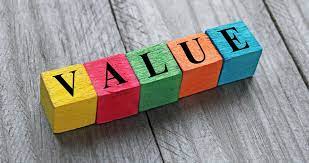Food is the fuel to make us go. Great food can leave us wanting more and craving it long after eating. That said, your diet may contribute to goal failure if not managed properly. Success is consistent activity that yields consistent results over a consecutive long term period. If you lose focus or completely stop that activity during a day because you are tired then you will not achieve your long term goal as quickly as you want or even at all. Consider that your diet is contributing to these daily feelings that divert you from your long term goals.
Steve Jobs believed that diet was a major factor to his success and therefore had a completely fruit and vegetable diet. While you may not be that extreme it is definitely clear to me that some foods allow for better focus throughout a day while others do not.
You will definitely notice that your energy crashes midday when you eat a large simple carbohydrate lunch. Or more obviously when you drink too much alcohol a night before everything during the day (including sometimes staying awake) can be difficult. Now this may seem obvious to some but we all do this at some level at some point in our lives.
Sometimes fasting and eating nothing at all can lead to greater daily focus. That said, fasting should only be intermittent as not eating anything at all can ultimately decrease energy which as a result decrease average productivity.
While there is a lot of conflicting advise from friends and family to books and programs on diet and nutrition there are some truths that seem to hold up . Foods that are bad for health and daily energy are:
- High in sodium
- High in sugar
- Processed which usually are high in preservatives to keep it unnaturally fresh for a long period of time, high in sodium, and high in sugar.
- High in simple carbohydrate
So what is actually good for you?
I find that proteins that I cook myself without seasoning, complex carbohydrates, fruits, and vegetables leave me with the most energy during the day. That said, moving to a diet of extremely healthy foods immediately if you have a poor diet can lead to swinging back to the complete opposite extreme of high sodium, sugar, and processed foods. Therefore, figure out how to find a good balance between what tastes good and what is healthy. Start with something that is moderately healthy and work your way towards food that is more healthy. The more good decision you make incrementally the greater your average output will be as when you have a long term goal your overall progress will be the average of your output over a long period of time rather than quick short bursts of progress followed by stagnation. Bag salads can be a good example of moderately healthy food. While having a salad with dressing is less healthy than just eating vegetables plain, it is better than eating that processed cheese burger from McDonalds. Think about your daily food choices as a spectrum and to the best of your ability make choices that fall closer to the spectrum of moving towards your goal (assuming it is to eat healthier and have more daily energy) rather than away from it.
Figure out how to make the healthiest choices instantly gratifying and the quickest choice. This can be done by making the good choices the only ones available immediately and the choices that are bad for you are more difficult and take longer when made. Use your quick and automated mental system to your advantage. A good rule is to consider a habit to take 28 days. While this may just be a mental construct it is a good rule to follow. If you are able to consistently make the same choice for 28 days then it is likely that the habit will be longer term and ultimately be easier to choose. From my knowledge on the subject the brain produces dopamine when it makes a choice and doesn’t necessarily care what the choice is. Therefore, consistently making the same choice gears the brain to want that thing regardless of what that is. So, create plan for what you want and may a consistent choice.
All that said, completely depriving yourself of food you enjoy is not sustainable long term. Therefore, allocate one day in the week for you to indulge in unhealthy food as a cheat day. However, keep it to just one day. My day is Saturday. That way as you are making your daily choices you can defer gratification for the unhealthy food you crave to that one day and become more consistent in your eating habits as opposed to short bursts of healthy and unhealthy eating streaks. During your week when you feel a craving for food that you should only eat on your cheat day consciously say either out loud or in your head that you will eat that food on your cheat day (in my case I would say when I want to eat something I generally crave for example “I will eat Pizza on Saturday”) then write down on your calendar that you will eat that food that day as a plan to work towards. Generally developing a skill to delay gratification will also help you in all other aspects of your life as well as long term success involves a lot of delayed gratification in areas such as budgeting, actions that can seem difficult or not profitable in the short term, exercise, or just generally activities that just don’t seem really great in the moment but have positive long term benefits.
Diet and nutrition must be constantly be balanced. Feel prepared to fail and start again multiple times before eventually getting good habits to stick. That said, the better you are able to refocus and sustain a long term streak of healthy eating the better your average output will be and the quicker you will get to achieving your goals.


